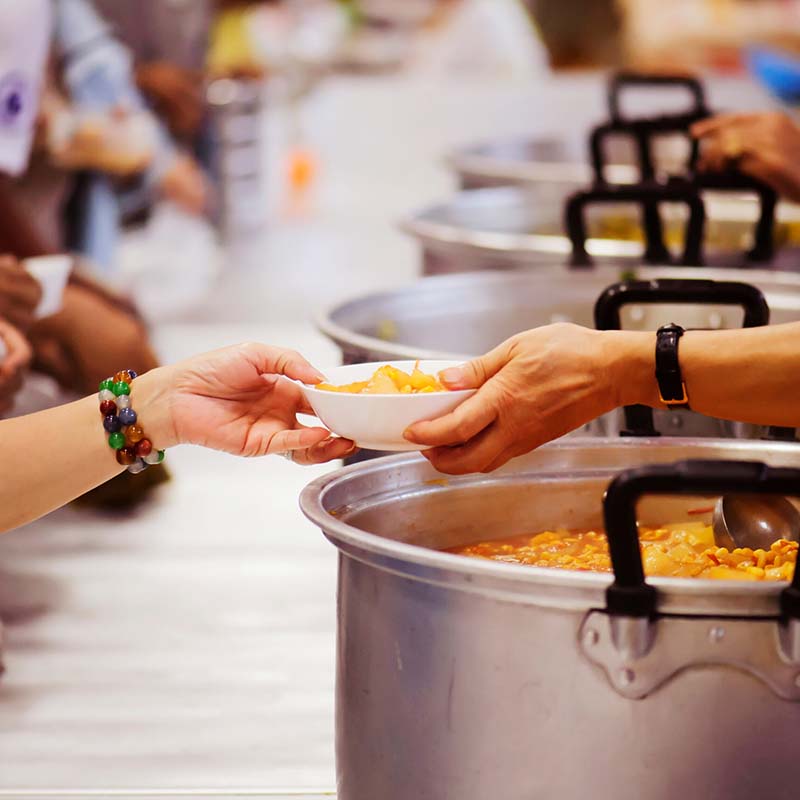
Enabling Food Care Through Capacity Studies

By: Rachel Otair Parris - Director of Operations
October 5, 2021
Capacity Studies – Reducing food insecurity and food waste may be Abound Food Care’s mission but many other organizations are critical components in the sustainability ecosystem. They are all essential musicians of this orchestra, from the food service industry and nonprofit food pantries and food banks to logistics companies and government agencies. In recent years food recovery has become an area of increased focus in the conversation of improving the food system and sustainability. Increasing awareness of the importance of reducing organics, like food waste in landfills, and addressing food insecurity has taken on increased significance. With this awareness has come an eagerness for the foodservice industry to participate in food donation. Some states have implemented, or are considering, legislation to require an increase in food donations to reduce organics in landfills.
To achieve our ultimate goal of reducing edible food waste and food insecurity, we also need to ensure that the nonprofit sector has the support it needs to handle this increase in edible food coming through their doors. Evaluating and finding ways to build capacity and activate resources has been identified as a critical part of this expansion in food donation.
The nonprofit sector is full of compassion and respect for those they serve. They are mission-led and always want to do right by their communities. They are the boots on the ground fighting food insecurity every day. Through needs assessments and capacity studies, we can determine what they need to serve more people safely and efficiently. Areas of evaluation in these capacity studies often include cold storage, volunteers, and logistics assistance through either additional vehicles to pick up food donations or partnership with, and utilization of, logistics companies to assist as needed. In conducting capacity studies Abound Food Care looks for gaps in the food system and seeks to fill those gaps utilizing national partnerships.
Capacity studies are also crucial for food donors. As part of a capacity study, a review is completed to see if food donors are participating in a program and are satisfied with the service the nonprofit pantries and food banks provide. This encourages a positive relationship between donors and recipients and identifies the gaps that need to be addressed. We also find out if there are local obstacles such as a limited nonprofit network or lack of food runners to pick up food donations.
When discussing food donation programs with food service professionals, the main concern is that food safety is taken seriously by both the food donor and nonprofit picking up the food. The Bill Emerson Good Samaritan Act is a federal act that holds food donors harmless from liability as long as the business’s donation is in good faith. However, food donors are still concerned with the potential reputational risk associated with mishandled food. Pantries and food banks should be aware that food donors will only feel comfortable partnering with them if they know the pantry will handle donated food with the same safety procedures as for-profit food organizations. Practicing standard food safety procedures addresses liability concerns and the protection of the food donor’s brand and is an area of evaluation in the capacity study.
With this awareness and focus on reducing edible food waste and food insecurity, nonprofits should be considered vendors to the food establishments. Many ancillary benefits to a business participating in food donations include cost savings, community recognition, and tax deduction. Without the ability of a nonprofit pantry or food bank to receive this excess food, our food recovery ecosystem cannot survive effectively.
Capacity studies are a critical part of implementing a successful food recovery and donation program. Without knowing the landscape, funding opportunities, needs, and network as a whole, the implementation of an efficient and effective program could be an uphill battle. The capacity study allows us to look at every component of the supply chain in assessing how to best implement a food recovery program that works well for all the organizations which make up the community orchestra. At Abound Food Care, we often talk about how so much edible food ends up in landfills while so many are food insecure. If we can work together to identify where there are shortfalls, where we can improve and where we can make a difference, we can, one day, end food insecurity and edible food waste.
To learn more about Abound Food Care’s Capacity Study services, contact us!


